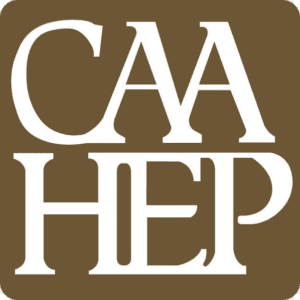The Importance of ABHES and CAAHEP Accreditation in Nursing
 When choosing a nursing or medical assistant program, understanding and considering ABHES and CAAHEP accreditation is essential.
When choosing a nursing or medical assistant program, understanding and considering ABHES and CAAHEP accreditation is essential.
Attending an accredited program ensures that you receive a quality education that meets national standards, which can directly affect your employment opportunities, eligibility for licensure exams, and eligibility for federal financial aid.
For nursing students, especially those aiming for Registered Nurse (RN) status, attending an accredited program is particularly crucial.
Without it, you may not be eligible to take the National Council Licensure Examination for Registered Nurses (NCLEX-RN) or meet state licensure requirements.
Why Accreditation Matters for Nursing Education
Accreditation guarantees that healthcare programs, including those for nursing and medical assistants, meet high educational standards. Nationally recognized accrediting bodies such as the Commission on Collegiate Nursing Education (CCNE) and the Accreditation Commission for Education in Nursing (ACEN) focus on nursing programs for RNs and graduate nurses. In contrast, ABHES and CAAHEP focus on programs for nursing assistants, licensed practical nurses (LPNs), and certified medical assistants (CMAs), though they may not accredit RN or graduate-level programs.

Struggling to meet your deadline?
Get your assignment on The Importance of ABHES and CAAHEP Accreditation in Nursing done by certified MDs and PhDs in the USA. ORDER NOW!
Understanding accreditation is crucial for anyone pursuing a career in healthcare, including those looking for accredited nursing programs, Certified Nursing Assistant (CNA) programs, and Accredited Medical Assistant Programs. Keep reading to find out more about why choosing an accredited program is so important and how to find accredited programs that will lead to successful career paths.
What is ABHES?
ABHES (Accrediting Bureau of Health Education Schools) is a private, non-profit accrediting agency recognized by the U.S. Department of Education. It is a leader in accrediting healthcare education programs. ABHES accreditation ensures that a nursing or healthcare program adheres to high-quality standards and is accountable for continuous improvement. 
Accredited institutions must meet a variety of criteria, including program goals, faculty quality, and student services. For example, ABHES-accredited programs must provide rigorous training in clinical and medical skills, align with industry best practices, and provide students with solid career placement services. This accreditation is essential for aspiring licensed practical nurses (LPNs), CNAs, and CMAs looking to work in a healthcare environment that values high standards of care.
What is CAAHEP?
CAAHEP (Commission on Accreditation of Allied Health Education Programs) is another leading accrediting body for healthcare programs, focusing on specialized, career-specific health science programs, such as nursing and medical assistant programs. CAAHEP ensures that accredited programs meet the required educational standards for fields like healthcare, nursing, and other medical professions.
CAAHEP accredits over 2,100 healthcare programs, including CNA and MA programs, and helps maintain consistency and quality across institutions offering health science education. For example, medical assistant programs accredited by CAAHEP help ensure that students are well-prepared for their roles in the medical field, with training that meets national certification standards, including preparing students for the CMA exam.
Why is Accreditation Important?
Choosing an accredited nursing or healthcare program has many advantages. These benefits include:
- Ensuring program quality: Accreditation ensures that the program meets national educational standards.
- Job prospects: Employers often prefer or require graduates from accredited programs, ensuring that students are job-ready.
- State licensure: Many states require that nursing programs be accredited in order to take licensure exams, including the NCLEX-RN for registered nurses.
- Transferability of credits: Attending an accredited program ensures that your credits will be accepted by other accredited institutions, allowing for easier transfers.
- Eligibility for federal financial aid: Accredited programs make students eligible for federal grants, loans, and other forms of financial assistance.
Accreditation and NCLEX-RN Eligibility
A key requirement for taking the NCLEX-RN exam is that a nursing program is accredited. Without accreditation, students may be unable to sit for this crucial exam, which is needed to obtain a registered nurse license. Accreditation also helps to ensure that nursing graduates are prepared to meet the expectations of the healthcare industry and have the knowledge necessary to provide safe and effective patient care.
Certified Nursing Assistant (CNA) and Medical Assistant (MA) Programs
Accreditation also plays a vital role in CNA and MA programs. CAAHEP and ABHES accreditation ensure that these programs meet the required standards for training healthcare professionals. For CNAs and MAs, being trained in an accredited program is crucial to ensuring competence and certification in their respective fields.
For CNAs, accreditation guarantees that the training is comprehensive and that students are prepared for certification exams. Similarly, medical assistants trained in CAAHEP-accredited programs are prepared to pass the CMA exam and enter the workforce with the skills necessary for success.
Accreditation of Various Nursing Programs
When it comes to nursing programs, different types of nursing degrees require specific accreditation. For example, Registered Nurse (RN) programs are typically accredited by either CCNE or ACEN, while specialized programs like Nurse Anesthesia or Nurse Midwifery programs have their own accreditation bodies.
For LPNs, CNAs, and other healthcare professionals, it’s important to choose programs accredited by ABHES or CAAHEP. These accrediting agencies ensure that all aspects of the training program, from clinical experience to curriculum quality, are up to national standards.
How to Verify a Program’s Accreditation
Before enrolling in any nursing or healthcare program, it’s important to verify that the program is accredited. You can check the program’s accreditation status through the following sources:
- U.S. Department of Education: The Department of Education maintains a list of recognized accrediting agencies and accredited institutions.
- ABHES and CAAHEP websites: Both ABHES and CAAHEP provide online databases where you can search for accredited programs and schools.
- School websites: Accredited programs usually display their accreditation status on their websites.
Frequently Asked Questions About Accreditation
What Does “Accredited Program” Mean?
An accredited program meets national quality standards set by recognized accrediting bodies, ensuring that the program provides a high level of education and prepares students for successful careers.
How Can I Check a Nursing Program’s Accreditation Status?
You can check a program’s accreditation status by visiting the program’s official website or searching for the program in the accreditation databases maintained by ABHES, CAAHEP, or the U.S. Department of Education.
What Is the Difference Between ABHES and CAAHEP Accreditation?
ABHES and CAAHEP are both respected accrediting bodies, but ABHES accredits both institutions and specific programs, while CAAHEP focuses on accrediting individual health science programs, such as medical assisting and nursing assistant programs. 
Benefits of Attending an Accredited Nursing Program
Attending an accredited nursing program offers several key benefits:
- Ensuring High-Quality Nursing Education: Accreditation guarantees that the program meets high standards and provides a comprehensive education.
- Better Job Opportunities and Career Advancement: Graduates from accredited programs have an edge in the job market, as employers prioritize quality training.
- Eligibility for Federal Financial Aid and Tuition Reimbursement: Accredited programs make students eligible for financial aid, which can ease the cost of education.
In conclusion, when choosing nursing or healthcare programs, accreditation should be a key factor in your decision-making process. Whether you are looking to become a registered nurse, licensed practical nurse, certified nursing assistant, or medical assistant, selecting an accredited program ensures you meet the educational standards necessary for success in your career.

Dont wait until the last minute.
Provide your requirements and let our native nursing writers deliver your assignments ASAP.

